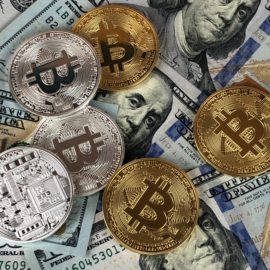

This article is an excerpt from the Shortform book guide to "The Intelligent Investor" by Benjamin Graham. Shortform has the world's best summaries and analyses of books you should be reading.
Like this article? Sign up for a free trial here .
What is the junk bonds definition? Should you ever invest in junk bonds? Why or why not?
The junk bonds definition is a bond offered with a higher interest rate. Junk bonds can be appealing at first glance since they often promise high yields, but investors should be cautious and only buy junk bonds in certain situations.
Read more about the junk bonds definition, when to buy junk bonds, and when to avoid them.
Junk Bonds Definition: Should You Avoid Them?
An aggressive investor willing to do a lot of work will likely be more interested in a broad array of asset classes. If you know what you’re doing and can find good opportunities, you’ll likely enter areas that defensive investors should stay clear of.
For the below issues related to the junk bonds definition, the aggressive investor should be cautious and scrutinize the security before investing.
- Be careful not to get carried away by the promise of higher returns while ignoring the risk and inadequate margin of safety.
- Avoid buying each of these securities at full prices. Consider buying them only at steep discounts (where prices are below two-thirds of their fundamental value).
In any of these classes, you may find clear bargains, but you need to be more careful than usual.
Defensive investors should avoid these entirely and consider the junk bond meaning when looking at bonds.
Second-Grade Bonds (Junk Bonds) Definition
What exactly is the junk bonds definition? Companies with a sound position offer first-rate corporate bonds. More precarious companies with lower credit ratings issue lower-grade bonds (also known as “junk bonds”) with a higher interest rate.
One heuristic Graham uses to determine the grade of a bond is the ratio of company earnings to interest charges.
- Junk bond example 1: In the railroad industry, for instance, he prefers that a company earn at least 5 times the annual interest charge; less healthy companies might only have enough earnings to cover 1 times the interest charge.
- Junk bond example 2: In modern times, WorldCom sold $11.9 billion of bonds in 2001. However, its pretax income fell short of covering its interest charges by $4 billion. It could only pay off its interest by borrowing even more money. While its bonds did offer 8% yields for a few months, WorldCom went bankrupt in 2002.
It may be tempting to buy these lower-grade bonds purely for the sake of a higher yield. But Graham cautions that it’s unwise to seek attractive yield without adequate safety. The companies issuing lower-grade bonds have a higher chance of default and you may actually lose your entire principal, merely for an extra 1-2% of yield.
Therefore, a second-grade bond selling at par value is usually a bad investment. It’s better to buy lower-grade bonds at steep discounts. That’s the valuable junk bonds definition. Because these bonds tend to rise and fall with markets, a patient investor will be able to find good deals.
In his modern commentary, Zweig mentions there are now junk-bond funds that allow more diversification across dozens of different junk bonds. While they do outperform Treasury bonds on paper, they tend to charge high fees.

———End of Preview———
Like what you just read? Read the rest of the world's best book summary and analysis of Benjamin Graham's "The Intelligent Investor" at Shortform .
Here's what you'll find in our full The Intelligent Investor summary :
- Key advice from what Warren Buffett considers the "best book about investing"
- The 2 major indicators you should use for evaluating stocks
- How you can use aggressive or defensive investing strategies






